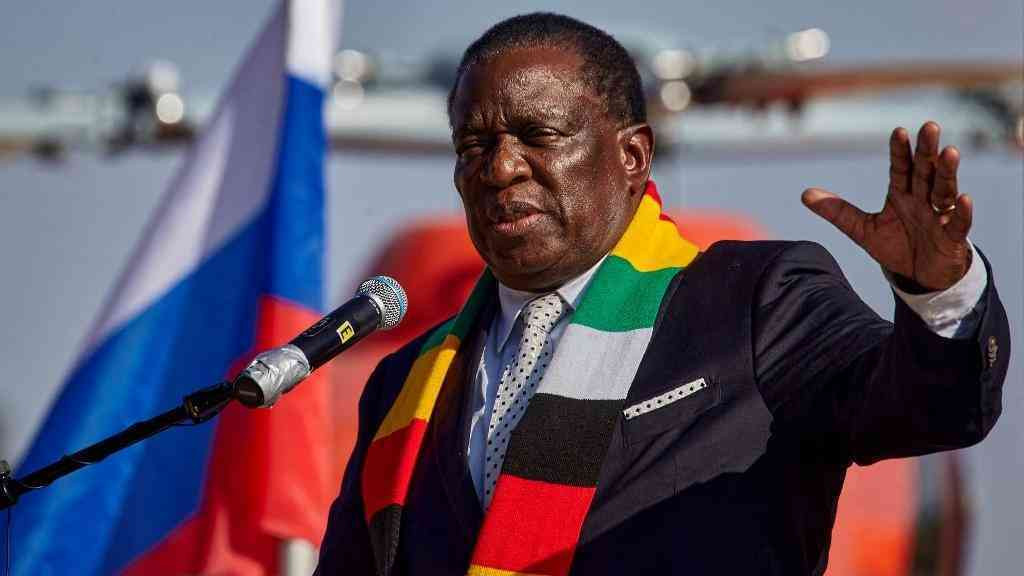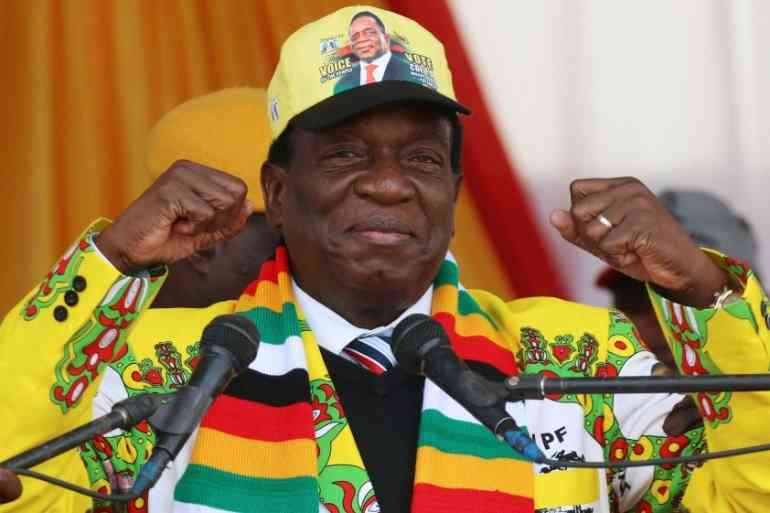
Opinion: Anthony Hawkins
ZIMBABWE’S 2020 budget presented on Thursday moves the economy even more deeply into the realm of dartboard economics. Forecasts made in the pre-budget “strategy” document, and the International Monetary Fund (IMF) Staff Monitored Programme in April, not to mention the 2019 budget a year ago, have been junked.
Not just junked but overshot by massive three-digit percentage increases. They are replaced by some numbers — not the full range as published a year ago — plucked out of air, or perhaps from the dartboard.
A year ago, inflation was projected, with impressive exactitude, at 22,6%, while the IMF SMP — also exact to one decimal point — forecast 80,8% with a year-end number of just under 50%. Within hours of his budget presentation, ZimStats published a monthly inflation number for October of 38,8% which came as a shock in the wake of official claims that inflation “spiked” in June at 39%, which it obviously did not.
Year-on-year inflation, which Minister Ncube apparently thinks we are too intellectually challenged to be able to work out for ourselves, jumped almost 100 points to 440% from 353% in September. Food prices were up almost 50% in a month, while electricity prices rose 117%, which was no surprise.
These numbers suggest inflation in 2019 will average around 250%, which is significantly higher than the 215% imputed from the budget numbers. In the 2019 budget, inflation was forecast with great precision at 22,6%.
With nominal GDP jumping 195% to $130,8 billion (still more exactitude) and real GDP falling 6,5%, the implication is that inflation in 2019 would average around 215%, which now looks far too low. Indeed, revised inflation estimates imply that the real GDP fell much more than officially estimated, perhaps reaching, minus 10%.
For the record, the SMP put 2019 GDP at $70 billion, while just two months ago the pre-budget document estimated $113,5 billion. In just eight weeks, it has been increased 15%. Treasury forecasters really need to try harder.
- Chamisa under fire over US$120K donation
- Mavhunga puts DeMbare into Chibuku quarterfinals
- Pension funds bet on Cabora Bassa oilfields
- Councils defy govt fire tender directive
Keep Reading
For 2020, the acclaimed year of “prosperity”, nominal GDP grows 160% — less than in 2019 — but with slower inflation (150%) real GDP grows about 3%, which looks optimistic, especially in the light of Ncube’s justifications for this return to positive growth.
Investment by the private sector will increase he says. Really. Better rainfall, tax incentives — including subsidising employment for “youths” (age unspecified) — marginal tax reductions, far exceeded by inflation, and, of course, improved macro-economic stability and financial discipline.
The minister managed to admit that despite repeated claims of a budget surplus, the actual deficit of $5,2 billion is 230% higher than projected in his 2019 budget, while in a return to quasi-fiscal activities, the government has been “spending outside the budget.” No surprise there of course, but an outright contradiction of his many “reform” promises that have not been honoured.
Government spending estimated at $8,2 billion a year ago will come in at over $26 billion — an overshoot of 218%. Fortunately, revenue driven by hyperinflation (353% in September), fuel duty and the IMTT 2% tax is 220% ahead of budget.
In the light of these massive forecasting errors — that extend to the SMP and pre-budget strategy as well as the 2019 budget — it has to be asked why the Finance ministry bothers. Parliament will be asked to approve a budget based on numbers that in 2019 bore no relation to reality. Why will it be any different this year? Have the Treasury’s forecasting skills improved miraculously in the last two to three months? It seems unlikely.
Ncube’s budget should, at the very least, have included — an annexure showing the real levels of tax, revenue and spending. After all corporates listed on the ZSE are required to use inflation-accounting techniques, so why not government?
Take the case of the pernicious 2% transactions tax. When it was introduced in October 2018, there was a threshold of $10 or $13,4 in 2019 prices. In mid-year this was doubled to $20, but in real terms, adjusted for inflation, it is now worth $5.
In the 2020 budget the threshold is raised to $100 or $25 as of October 2019 and by year-end an estimated $19. So in purchasing power, a ten-fold increase in the threshold since last October will be an equivalent to a 40% increase. By mid-2020, the threshold will be lower than when it was first introduced in 2018.
Apply the same logic to the marginal reduction in VAT from 15% to 14,5% and in corporate tax to 24% from 25%, and it is obvious that effective tax rates will rise.
Inflation-adjusted numbers make a mockery also of Ncube’s claims to have ended austerity. In 2020, real government spending will fall another 5% and will be 40% lower than in 2018. His claimed increase in capital spending turns out to be a 15% increase, but still leaves the capital budget one-third lower than in 2018.
As for the employment budget, it will rise 130% in 2020, but in real terms it will fall 10% and next year the real employment budget will be 70% below its 2018 level. So no one will be surprised to see public servants, doctors, assuming they have not all been fired, nurses and teachers on strike.
The ravages of inflation are only fully evident after the event. Even today, some in the financial sector and, of course, the RBZ, have yet to get their heads around what is happening. How else could “investors” — for which read losers of other people’s money — agree to lend government $300 million for six months at 14%.
Wimpish investment managers will say they are forced to subscribe for worthless paper by the government’s prescribed assets regulations. Minister Ncube bemoaning the fact that the pension and insurance industry is not compliant urges “industry players to ensure adherence to their compliance plans”
Obviously, no responsible investment manager can throw away one-third of his client’s funds in just six months to win ministerial approval. One wonders whether Ncube or governor Mangudya deliberately invests their own money at a massive loss. Savers and pensioners are there to be punished by cynical and unprincipled politicians and central bankers.
The sober reality, strengthened in this budget, is that Zimbabwe is deep in the throes of an inflation psychosis. By massively increasing government revenues and spending, albeit in nominal terms, Ncube, having abandoned what surely was one of the world’s shortest-ever austerity programme, is embedding inflationary expectations more deeply into the Zimbabwe psyche.
Even the fast-diminishing gaggle of new dispensation apologists will have enormous difficult in portraying this budget in positive terms, the more so after factoring in the October inflation number.
If inflation is really as high as 150%, then real aggregate demand will continue to fall and the minister’s 3% growth target — like every one of his 2019 targets will be missed.
Anthony Hawkins is a retired professor of economics. He writes in his personal capacity











